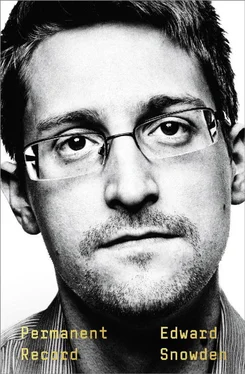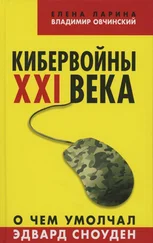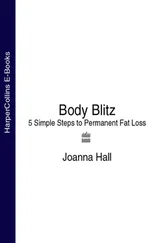“Drill Sarn”—that’s how everybody said it in Georgia, where my Southern accent had resurfaced for the moment—“I’m still waiting on my battle buddy, Drill Sarn.”
“And where the fuck is he, Snowflake?”
“Drill Sarn, I don’t know. He went into the examination room and hasn’t come out, Drill Sarn.”
He wasn’t happy with the answer, and barked even louder. “Get off your crippled ass and go fucking find him, goddamnit.”
I got up and crutched over to the intake counter to make inquiries. My battle buddy, they told me, was in surgery.
It was only toward evening, after a barrage of calls from the drill sergeant, that I found out what had happened. My battle buddy had been walking around on a broken hip for the past week, apparently, and if he hadn’t been taken into surgery immediately and had it screwed back together, he might have been incapacitated for life. Major nerves could have been severed, because the break was as sharp as a knife.
I was sent back to Fort Benning alone, back to the bench. Anybody on the bench for more than three or four days was at serious risk of being “recycled”—forced to start basic training over from scratch—or, worse, of being transferred to the Medical Unit and sent home. These were guys who’d dreamed of being in the army their entire lives, guys for whom the army had been their only way out of cruel families and dead-end careers, who now had to face the prospect of failure and a return to civilian life irreparably damaged.
We were the cast-offs, the walking wounded hellguard who had no other duty than to sit on a bench in front of a brick wall twelve hours a day. We had been judged by our injuries as unfit for the army and now had to pay for this fact by being separated and shunned, as if the drill sergeants feared we’d contaminate others with our weakness or with the ideas that had occurred to us while benched. We were punished beyond the pain of our injuries themselves, excluded from petty joys like watching the fireworks on the Fourth of July. Instead, we pulled “fire guard” that night for the empty barracks, a task that involved watching to make sure that the empty building didn’t burn down.
We pulled fire guard two to a shift, and I stood in the dark on my crutches, pretending to be useful, alongside my partner. He was a sweet, simple, beefy eighteen-year-old with a dubious, perhaps self-inflicted injury. By his own account, he should never have enlisted to begin with. The fireworks were bursting in the distance while he told me how much of a mistake he’d made, and how agonizingly lonely he was—how much he missed his parents and his home, their family farm somewhere way out in Appalachia.
I sympathized, though there wasn’t much I could do but send him to speak to the chaplain. I tried to offer advice, suck it up, it might be better once you’re used to it. But then he put his bulk in front of me and, in an endearingly childlike way, told me point-blank that he was going AWOL—a crime in the military—and asked me whether I would tell anybody. It was only then that I noticed he’d brought his laundry bag. He meant that he was going AWOL that very moment.
I wasn’t sure how to deal with the situation, beyond trying to talk some sense into him. I warned him that going AWOL was a bad idea, that he’d end up with a warrant out for his arrest and any cop in the country could pick him up for the rest of his life. But the guy only shook his head. Where he lived, he said, deep in the mountains, they didn’t even have cops. This, he said, was his last chance to be free.
I understood, then, that his mind was made up. He was much more mobile than I was, and he was big. If he ran, I couldn’t chase him; if I tried to stop him, he might snap me in half. All I could do was report him, but if I did, I’d be penalized for having let the conversation get this far without calling for reinforcements and beating him with a crutch.
I was angry. I realized I was yelling at him. Why didn’t he wait until I was in the latrine to make a break for it? Why was he putting me in this position?
He spoke softly. “You’re the only one who listens,” he said, and began to cry.
The saddest part of that night is that I believed him. In the company of a quarter thousand, he was alone. We stood in silence as the fireworks popped and snapped in the distance. I sighed and said, “I’ve got to go to the latrine. I’m going to be a while.” Then I limped away and didn’t look back.
That was the last I ever saw of him. I think I realized, then and there, that I wasn’t long for the army, either.
My next doctor’s appointment was merely confirmation.
The doctor was a tall, lanky Southerner with a wry demeanor. After examining me and a new set of X-rays, he said that I was in no condition to continue with my company. The next phase of training was airborne, and he told me, “Son, if you jump on those legs, they’re going to turn into powder.”
I was despondent. If I didn’t finish the basic training cycle on time, I’d lose my slot in 18X, which meant that I’d be reassigned according to the needs of the army. They could make me into whatever they wanted: regular infantry, a mechanic, a desk jockey, a potato peeler, or—in my greatest nightmare—doing IT at the army’s help desk.
The doctor must have seen how dejected I was, because he cleared his throat and gave me a choice: I could get recycled and try my luck with reassignment, or he could write me a note putting me out on what was called “administrative separation.” This, he explained, was a special type of severance, not characterized as either honorable or dishonorable, only available to enlistees who’d been in the services fewer than six months. It was a clean break, more like an annulment than a divorce, and could be taken care of rather quickly.
I’ll admit, the idea appealed to me. In the back of my mind, I even thought it might be some kind of karmic reward for the mercy I’d shown to the Appalachian who’d gone AWOL. The doctor left me to think, and when he came back in an hour I accepted his offer.
Shortly thereafter I was transferred to the Medical Unit, where I was told that in order for the administrative separation to go through I had to sign a statement attesting that I was all better, that my bones were all healed. My signature was a requirement, but it was presented as a mere formality. Just a few scribbles and I could go.
As I held the statement in one hand and the pen in the other, a knowing smile crossed my face. I recognized the hack: what I’d thought was a kind and generous offer made by a caring army doctor to an ailing enlistee was the government’s way of avoiding liability and a disability claim. Under the military’s rules, if I’d received a medical discharge, the government would have had to pay the bills for any issues stemming from my injury, any treatments and therapies it required. An administrative discharge put the burden on me, and my freedom hinged on my willingness to accept that burden.
I signed, and left that same day, on crutches that the army let me keep.
I can’t remember exactly when, in the midst of my convalescence, I started thinking clearly again. First the pain had to ebb away, then gradually the depression ebbed, too, and after weeks of waking to no purpose beyond watching the clock change I slowly began paying attention to what everyone around me was telling me: I was still young and I still had a future. I only felt that way myself, however, once I was finally able to stand upright and walk on my own. It was one of the myriad things that, like the love of my family, I’d simply taken for granted before.
As I made my first forays into the yard outside my mother’s condo, I came to realize that there was another thing I’d taken for granted: my talent for understanding technology.
Читать дальше












